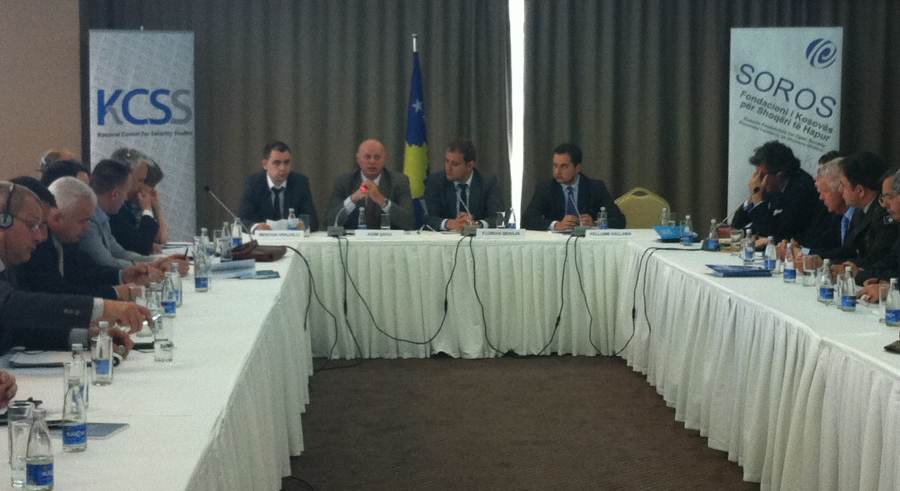24/04/2012

Under the auspices of the Kosovar Center for Security Studies (KCSS) in Pristina was held a round table named "Kosovo's path toward NATO program Partnership for Peace".
The roundtable was designed to address for the first time the challenges of Kosovo's integration into NATO structures, making the first step of integration in the "Partnership for Peace" and the establishment of contractual relations with NATO. Minister of Kosovo Security Forces (KSF), Agim Çeku, conveyed the vision of the Kosovo Government towards integration into NATO. He stressed that at the institutional level, Kosovo has made as substantial progress and has met the conditions for initiating the partnership with NATO; however, problems remained at the political level where the position of four states that have not recognized Kosovo represents a key problem. Two authors of this research, Mentor Vrajolli and Pëllumb Kallaba highlighted the need for advocacy for the inclusion of Kosovo in NATO initiatives based on the benefits that offer the programmes of this organization, both the KSF and civil society. In this context, according to the head of research of the KCSS, Pëllumb Kallaba, during March KCSS had advocated in NATO headquarters and with civil society organizations in Brussels on the need to establish partnership relations between Kosovo and NATO always aiming at the removal of Kosovo from the concept of crisis management, towards the state that is able to export security. Besides Minister Çeku, in this round table was attended also by the Ambassador of Norway, Great Britain, Belgium, Deputy Head of Mission from the Czech Embassy in Kosovo, U.S. Embassy military attaché and military attaché of Sweden.
The purpose of this research and the round table was launching a new debate to promote the Government's efforts and implementation of strategic vision for the Euro-Atlantic integration. Participants welcomed the decision to launch the Strategic Review of the Security Sector in Kosovo and the concretization of efforts for military mandate of KSF in the near future. Most participants agreed that in order to achieve progress in the processes of Euro-Atlantic integrations, a broad consensus and external support is needed, including civil society, academia and the media who may be influential in the promotion and maintenance of these processes.
In general, this conference represents only the beginning of KCSS efforts to advocate the promotion and acceleration of the dynamics of integration processes in Kosovo within the North-Atlantic family. All participants agreed that this joint commitment continue in the future.